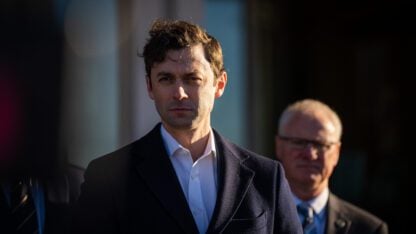The Prevention Research Center (PRC) at Georgia State University recently received a grant of up to $5 million from the Centers for Disease Control and Prevention to address social isolation and loneliness.
Dr. Michael Eriksen is Regent’s Professor and founding dean of GSU’s School of Public Health. He said the CDC identified social isolation and loneliness among its top concerns for the 20 similar research centers it helps fund nationwide.
Local community leaders in Clarkston, Georgia, who worked on the previous grant cycle focused on healthy child development and addressing the COVID-19 pandemic, also named loneliness among their top concerns.
In the second installment of “Six Million and Lonely,” we look at the local effort to better understand and eventually alleviate the loneliness struggle for Atlanta’s refugee and immigrant communities.
The current grant project will focus on Clarkston, a refugee resettlement hub known for its diversity, with almost 40% of the city’s population reporting as foreign-born, according to the U.S. Census Bureau.
Ashli Owen-Smith is the co-lead investigator on the project. She said this kind of work is important because there’s a gap in the literature regarding refugee, immigrant and migrant groups.
“What we know from prior research is that mindfulness practices can have … it can significantly improve loneliness. For example, one study showed that after 8 weeks of a mindfulness-based intervention, there was a significant reduction in loneliness,” Owen-Smith said.
The PRC will work with community partners, including the Clarkston Community Center, Refugee Women’s Network, and Positive Growth Inc., to adapt mindfulness practices and cognitive behavioral therapy to arts and culture activities that promote social connectedness.
Clarkston is home to residents from over 60 countries, and the research aims to help reduce isolation in these diverse communities. Findings from the project will be shared nationally to improve public health and community engagement.











